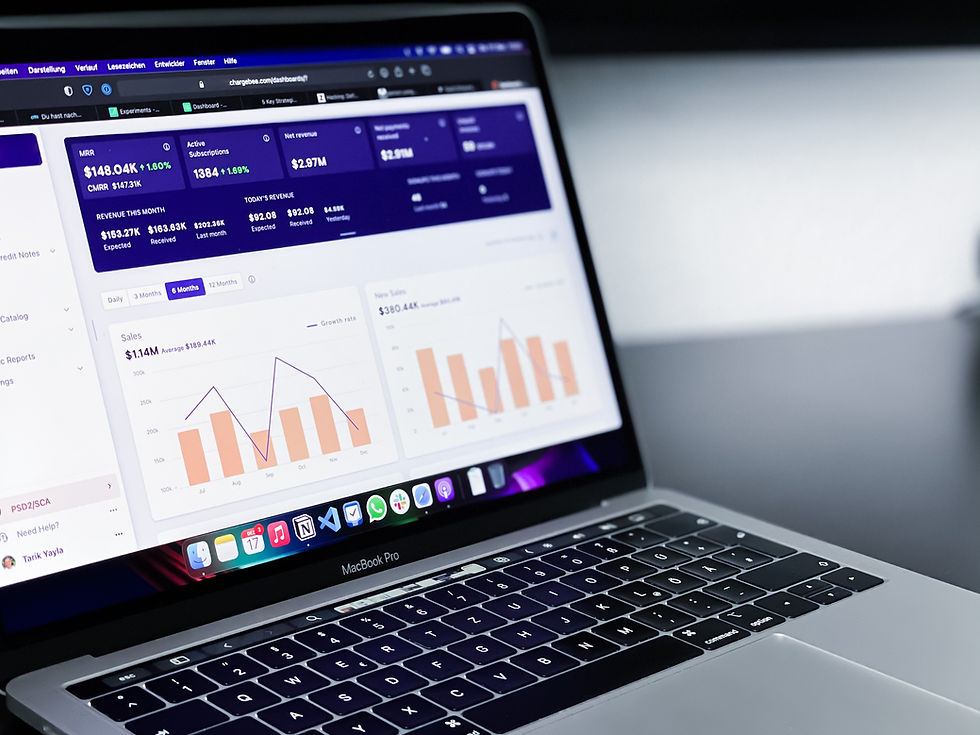The Importance of Data Integrity and Vetting Your Data Vendors
- Travis Hall
- Mar 30, 2023
- 2 min read
In today's data-driven world, businesses rely heavily on accurate and consistent information to make informed decisions. Data integrity is a critical aspect of any organization's success, as it ensures that data is accurate, reliable, and secure. Working with trusted data vendors is a vital component of maintaining data integrity. In this blog post, we will discuss the importance of data integrity and why it's essential to vet data vendors carefully.
What is Data Integrity?
Data integrity refers to the accuracy, consistency, and reliability of data stored in databases, data warehouses, or other information systems. It involves maintaining data quality throughout its lifecycle, from data collection and entry to storage, retrieval, and analysis. Data integrity is essential for several reasons:
Accurate decision-making: High-quality data enables businesses to make informed decisions that drive growth and success.
Compliance and regulations: Many industries are subject to strict data protection and privacy regulations, requiring companies to maintain data integrity.
Customer trust: Ensuring data integrity helps build trust with customers, as they know their information is accurate and secure.
Operational efficiency: Maintaining data integrity reduces the risk of errors, saving time and resources spent on identifying and correcting inaccuracies.
Why You Should Vet Your Data Vendors
Working with reliable data vendors is crucial for maintaining data integrity within your organization. Here's why you should thoroughly vet potential data vendors:
Quality of data: A reputable vendor will provide high-quality data that is accurate, consistent, and up-to-date. Inaccurate or outdated data can lead to misinformed decisions, negatively impacting your business.
Security and privacy: Data breaches and leaks can have severe consequences, including financial loss, reputational damage, and legal issues. Ensuring that your data vendor follows strict security and privacy protocols is essential to protect your organization and customers.
Compliance: Your data vendor should adhere to industry-specific regulations and standards, ensuring that your organization remains compliant.
Scalability: As your business grows, your data needs may change. A reliable data vendor should offer scalable solutions that can accommodate your evolving requirements.
How to Vet Data Vendors
Before entering into a partnership with a data vendor, consider the following steps to ensure that they meet your organization's data integrity requirements:
Research: Conduct thorough research on potential data vendors, including reviewing their website, case studies, and customer testimonials.
Ask for referrals: Reach out to industry peers or colleagues for recommendations on reliable data vendors they have worked with in the past.
Request a demo: A demo will allow you to evaluate the vendor's data quality, ease of use, and relevance to your organization's needs.
Verify security protocols: Ensure that the data vendor follows stringent security measures, such as encryption, access controls, and regular audits.
Check for compliance: Confirm that the vendor complies with industry regulations and standards relevant to your business.
Evaluate customer support: Assess the vendor's responsiveness and availability for customer support, as this can impact your organization's ability to troubleshoot and resolve data-related issues.
Data integrity is the foundation of data-driven decision-making and business success. By carefully vetting data vendors, you can ensure that your organization maintains high-quality data, leading to accurate insights and better decision-making. Invest time and effort into selecting the right data vendor, as it is a crucial step toward safeguarding your organization's data integrity and achieving long-term success.



